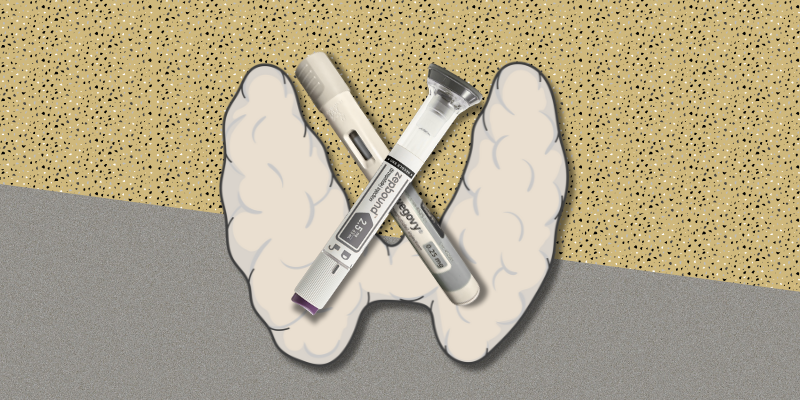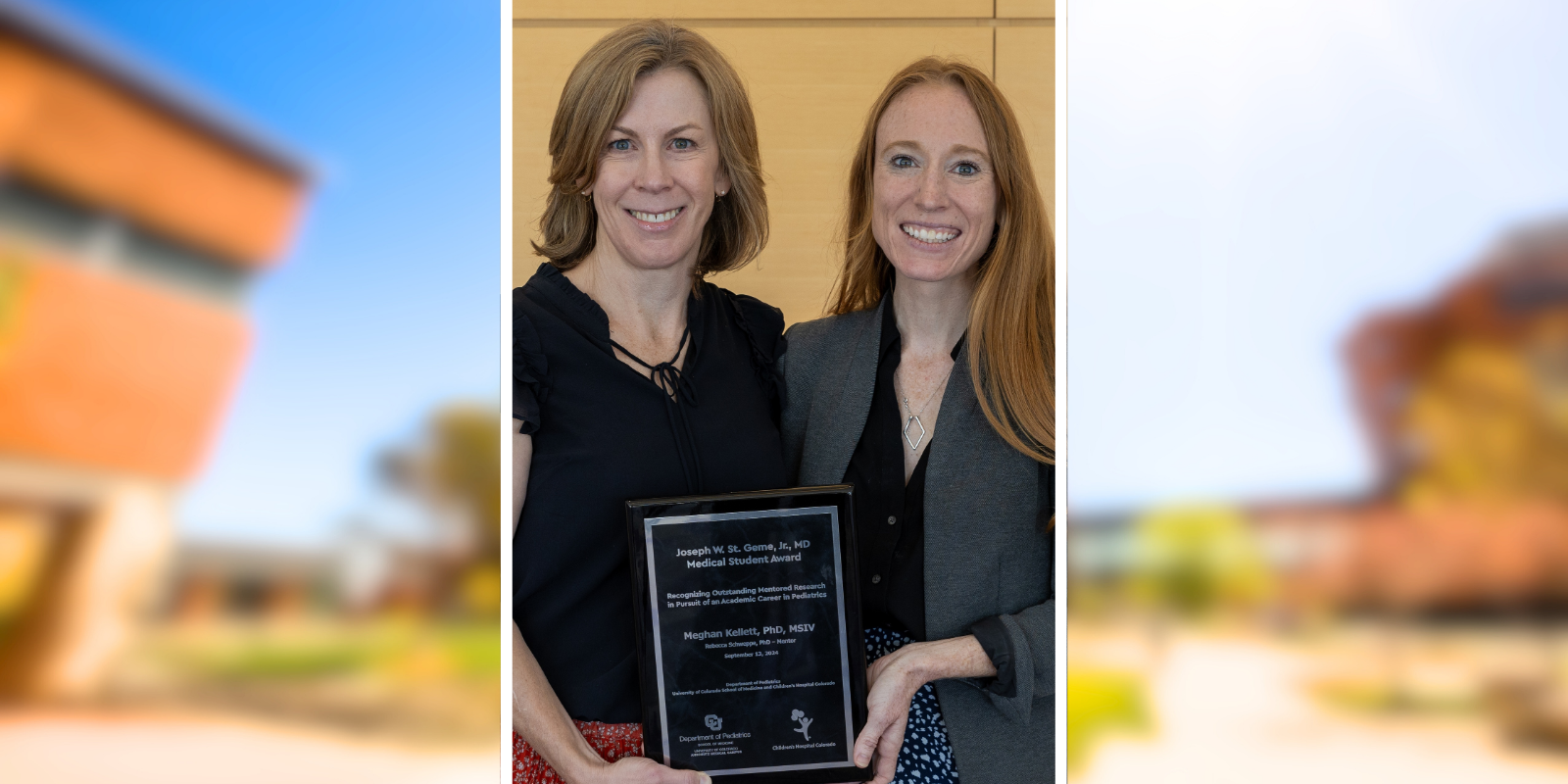University of Colorado Cancer Center member Bryan Haugen, MD, always knew he was a science person. His question was if he wanted to be a MD or a PhD. After completing his bachelor’s degree at Saint Olaf College in Minnesota, he did a few years of research at the Mayo Clinic before starting medical school there.
“I saw these physicians doing research and seeing patients, and I said, ‘Wow, you can do both.’ So I decided to pursue the medical route, knowing that I still wanted to do science,” Haugen explains.
Haugen, professor and head of the Division of Endocrinology, Metabolism, and Diabetes at the CU School of Medicine, is a physician-scientist. He has a basic science lab, does clinical research trials, and sees patients. His mentors helped him decide on his specialty of endocrinology and thyroid cancer.
“Early in my career I had a few patients who were young and had terrible thyroid cancer and died from the thyroid cancer, and I thought, ‘What can we do to make that better?’ And that launched my career in that area,” he says.
“Early in my career I had a few patients who were young and had terrible thyroid cancer, and died from the thyroid cancer and I thought, ‘What can we do to make that better?’ And that launched my career in that area."
Haugen has been part of many instrumental thyroid cancer advancements on the diagnosis and treatment side. This led to the Endocrine Society recognizing him with its 2023 Outstanding Scholarly Physician Laureate Award. The annual award recognizes outstanding contributions to the practice of clinical endocrinology in academic settings.
“It's a real honor to be chosen out of so many great people to get the award this year,” says Haugen, who has worked his entire career at the University of Colorado, starting in 1987. What has kept him in Colorado, he says, is the true collaborative spirit on campus.
“It isn't that one person gets the award,” he says. “It's because I was in such a rich environment and have such great collaborators.”
Monitoring thyroid cancer
One area in which Haugen played a key role is studies that showed the effectiveness of recombinant human thyroid‐stimulating hormone as a tool for monitoring patients with thyroid cancer.
“One of the things we do in thyroid cancer that's unique from any other cancer, both for testing and therapy, is use radioactive iodine,” says Haugen. “In order to use this method, you need temporarily to raise the thyroid-stimulating hormone to push the iodine into those cells you're trying to either find or treat.”
Previously, a patient was taken off thyroid hormones to make them hypo- or low thyroid, and they often felt miserable, he says.
“This option came out of research to say, ‘Can we do something better than making patients hypothyroid?’”
Haugen led one clinical trial and was part of many others that found that a patient did not need to have a low thyroid. For the past 15 years, this has been the standard of care. A patient almost never is taken off his or her thyroid hormone, and the standard is to use recombinant human thyroid‐stimulating hormone for diagnosis and therapy.
Developing a novel diagnostic panel
Another area in which Haugen was instrumental was developing a novel gene expression classifier diagnostic panel that significantly enhances the accuracy of diagnosing thyroid cancer.
“As with many cancers – and thyroid cancer is a big one – we do a biopsy of a thyroid nodule to say, is it cancerous? You get three basic answers: Yes, it is; no, it isn't; or I don't know,” Haugen says.
Since the early ’90s. Haugen has been using molecular diagnostics to figure out if those indeterminate nodules are cancerous. Haugen’s findings, published in the New England Journal of Medicine in 2012, suggest consideration of a more conservative approach for most patients with thyroid nodules.
“It avoided a bunch of unnecessary surgery,” he says. “We've also worked on second-generation molecular testing, and now we're using third-generation molecular testing that's even more accurate.”
This work continues to evolve. Haugen has now partnered with Nikita Pozdeyev, MD, assistant professor in the Department of Biomedical Informatics, to use artificial intelligence to learn which nodules need a biopsy. Their goal is to decrease the number of unnecessary biopsies that lead to potentially unnecessary surgeries.
Thyroid cancer guidelines
Haugen led the committee that developed the 2015 American Thyroid Association Guidelines for the Management of Thyroid Nodules and Differentiated Thyroid Cancer. These guidelines are still used today by endocrinologists around the world to determine the management of everything from a thyroid nodule to advanced thyroid cancer.
“One of the big things that came out of these guidelines was that we reclassified thyroid nodule ultrasounds and tried to get better at saying, ‘Should this nodule be biopsied or not?’ Before that, if it was over a certain size — usually a centimeter — every nodule was biopsied, and most were benign.”
This change leads the medical staff to now focus on ultrasound characteristics to determine when a biopsy is needed.
The other area that changed from these guidelines was the use of radioactive iodine.
“The literature really had shown for years, prior to these guideline updates, that we probably were overtreating people because we wanted to make sure their cancer didn't come back,” Haugen says.
Thanks to the guideline change, there has been a large shift in who is being treated and diagnosed for thyroid cancer.
“I think we're getting into a good balance of trying to find the stuff that could give people trouble and taking care of that early,” Haugen says. “And then reclassifying those little things we previously called cancer that maybe shouldn't be, we're trying to be less aggressive with those and get the right treatment or monitoring for the right patient at the right time.”
When Haugen talks to a patient who was just diagnosed with cancer, he shares his wisdom and experience with them.
“The chance of this diagnosis shortening your life is extremely low,” he tells them. “You're going to live a nice, long, healthy life if your cancer has anything to do with it.”

.png)

